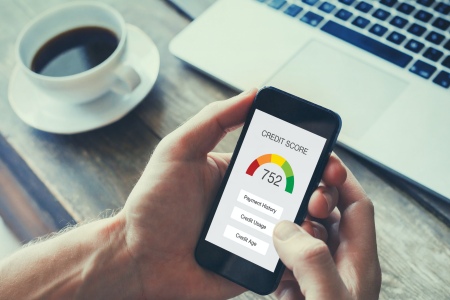
5 Smart Moves to Improve Your Credit Score
One of the best ways to have more money is to improve your credit score. A bad credit score will result in rejection from lenders. And even if you succeed in securing credit, you will not get the best interest rates. A bad credit score could also cost you a good job. Even potential dating partners check out each other’s credit score before committing.
What Goes into Your Credit Score?
Your credit score is based on five primary components.
- Payment history (35% of your score)
- Credit utilization (30% of your score)
- Length of credit history (15% of your score)
- Credit mix (10% of your score)
- New credit (10% of your score)
Both positive and negative information received by the credit reporting agencies is utilized to determine your credit score.
1. Order a copy of your credit report.
Before beginning the job of improving your credit score, you need to know what is on your credit report. You are entitled to a free copy of your credit report from each of the reporting agencies. You should be in the habit of checking at least twice a year.
Carefully review all the details on your report, looking for errors, such as open accounts that were paid. Is your payment history correct? Do all the credit accounts listed belong to you? If you find errors or evidence of fraud, report it right away. If need be, contact the creditors directly. Be aggressive until your report is an accurate reflection of your credit history.
2. Pay your bills on time.
As you see, 35% of your credit score is based on your payment history. The smartest move to improve your credit score is simply to do your bills on time. Automate payments as much as possible. Use message alerts or other technology to remind you of due dates. If you are facing a cash flow problem, get in touch with your creditors and ask for some flexibility. In this way, you will not be penalized with late payment reports.
3. Pay more than the minimum balance.
If you have maxed out your credit cards, your credit utilization factor is going to be high. This is the second most crucial component in your score. Paying only the minimum balance on your credit cards is like treading water. You do not make progress toward reducing the overall balance. Financial experts suggest that you aim for no more than 10% utilization. Focus on the credit cards closest to the credit limit and work to bring those balances down. If you are able to pay twice a month, you can also improve your credit utilization ratio.
4. Keep old accounts open.
Many consumers make the mistake of closing out accounts once they are paid off or no longer in use. However, keeping them open helps your credit score. As you see, 15% of your credit score is based on your credit history. Potential creditors like to see a history of how you have handled your financial obligations in the past. You can improve your credit score by leaving your old accounts open.
5. Be careful about applying for new credit.
Each time you apply for a new credit card, mortgage, auto loan or other form of new financing, a hard inquiry is recorded on your credit report. A single pull now and then will not significantly impact your credit score. However, if you do this multiple times during the month, you can damage your credit score. Before applying for credit, check your credit score. Assess whether you are likely to be approved before moving forward with the application.
Bottom Line
Improving your credit score takes time and persistence. But once you have a game plan in place, you can easily make the kind of smart moves that will improve your credit score. And then you will be on your way to financial freedom.
